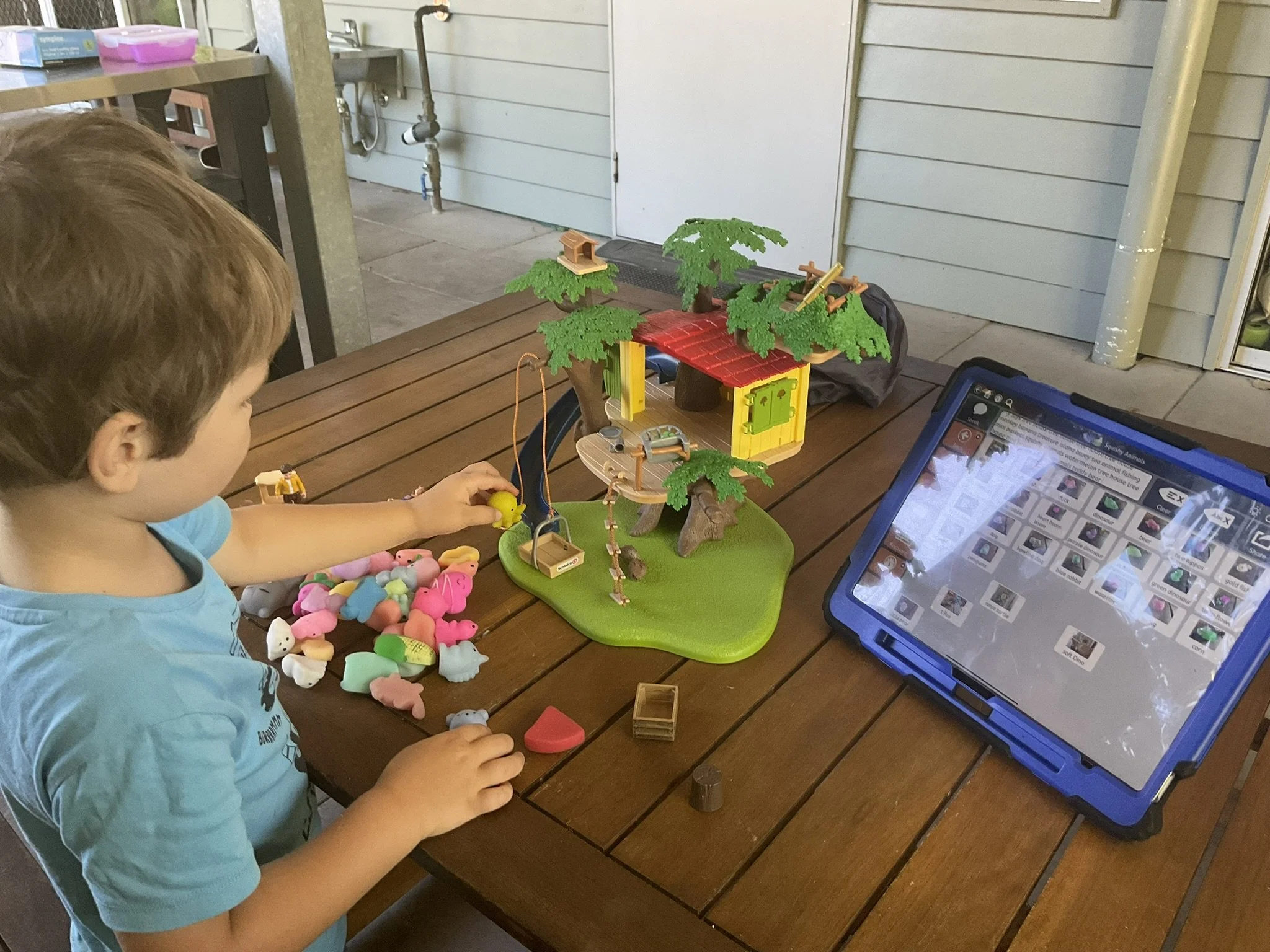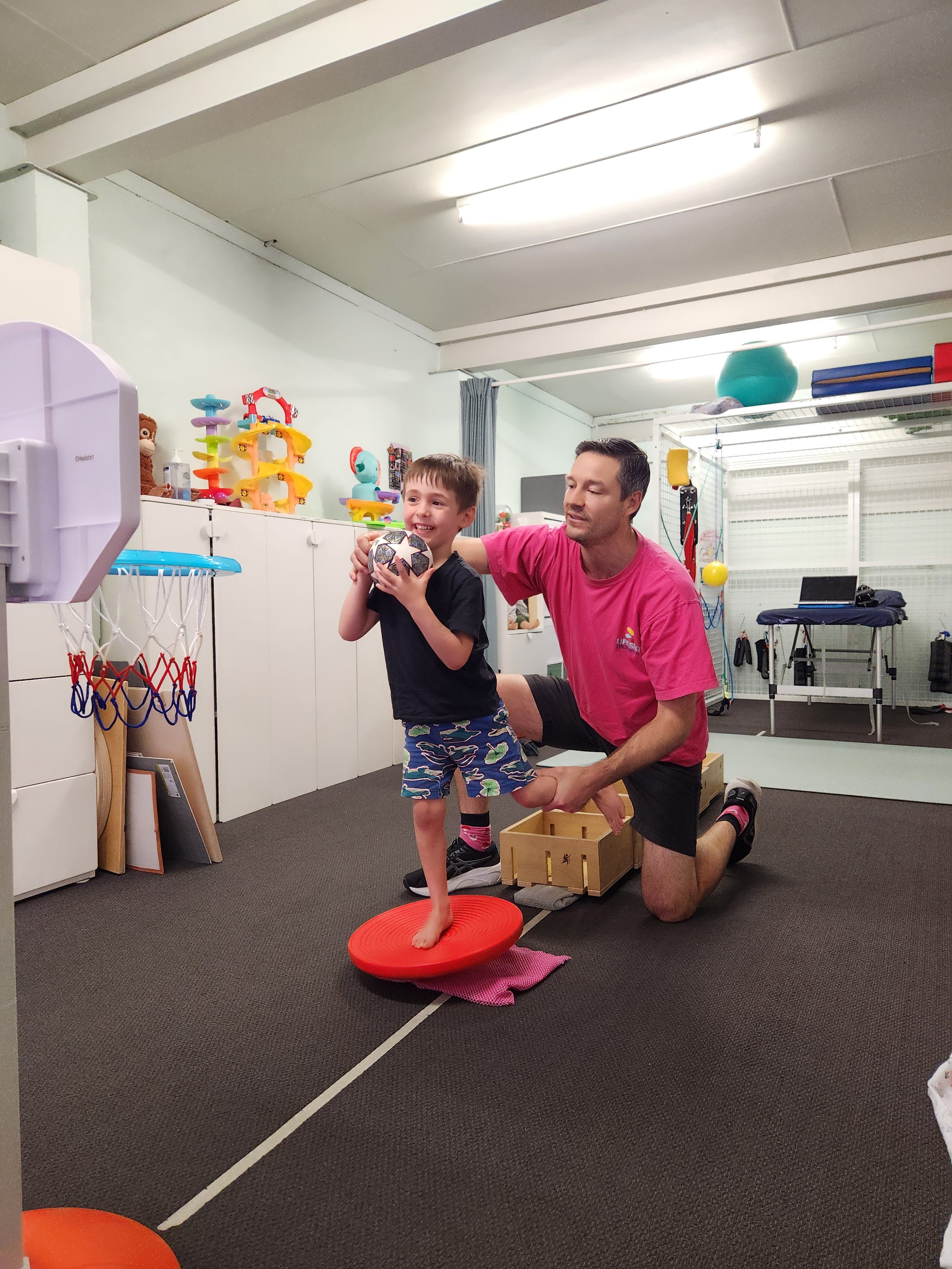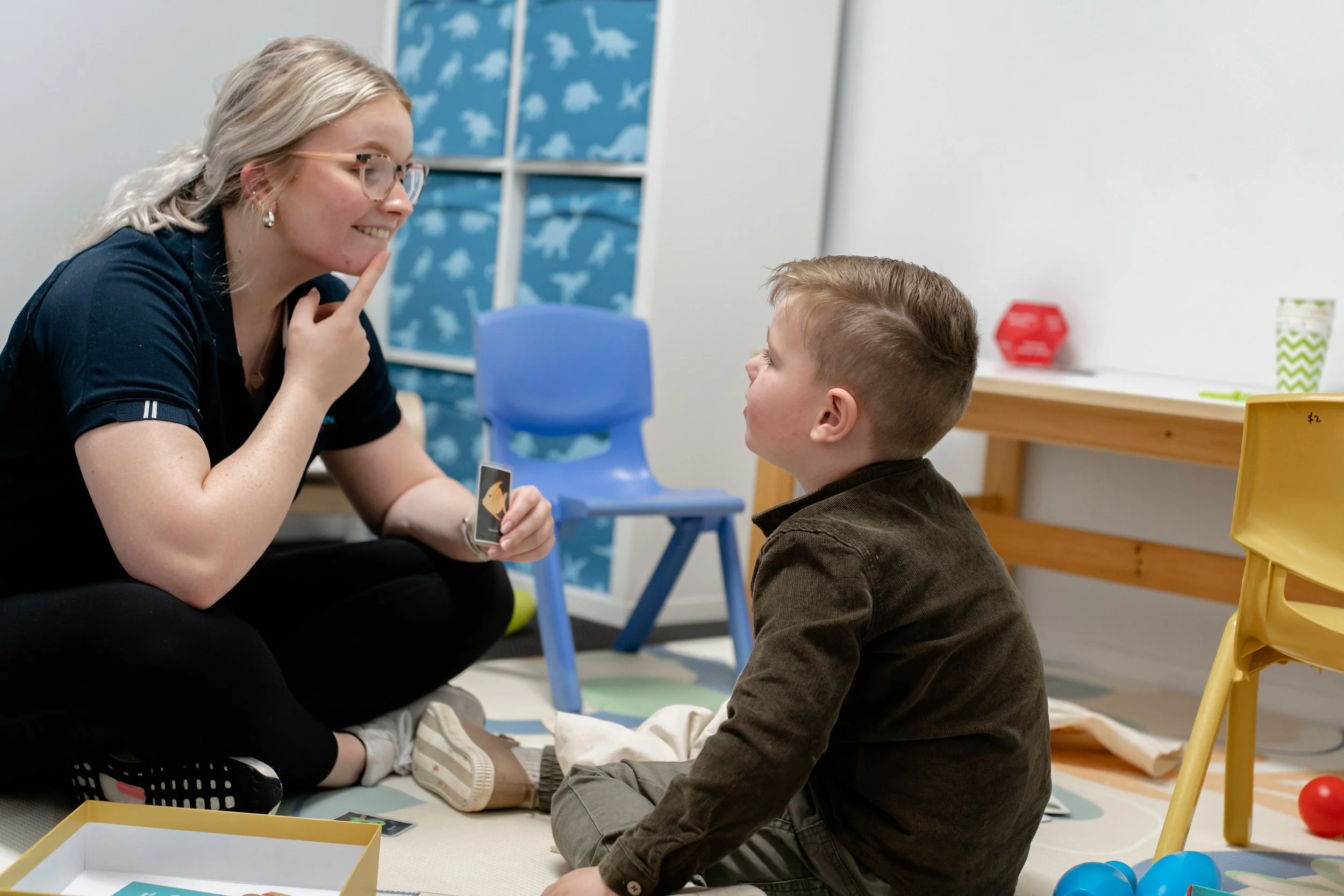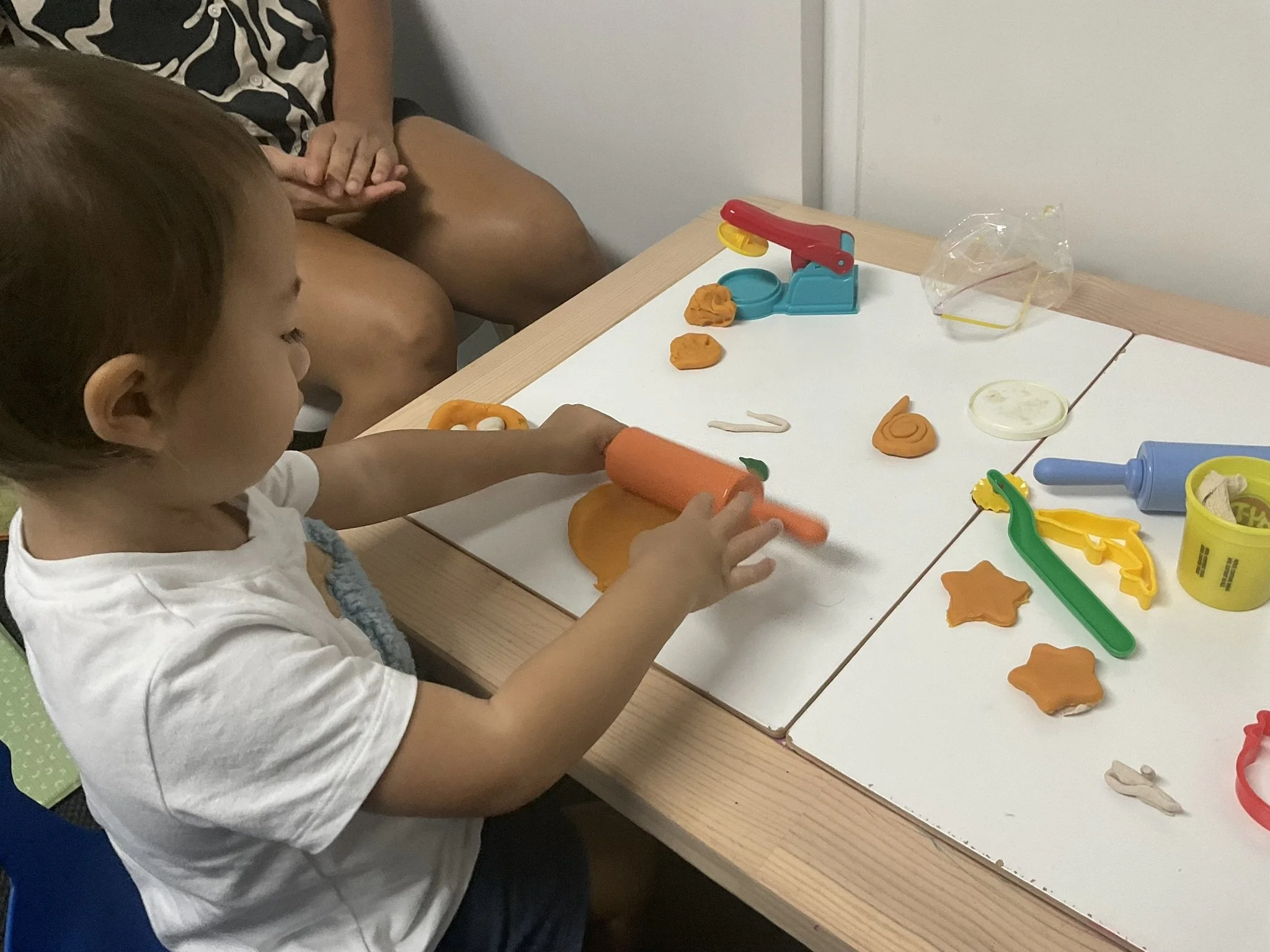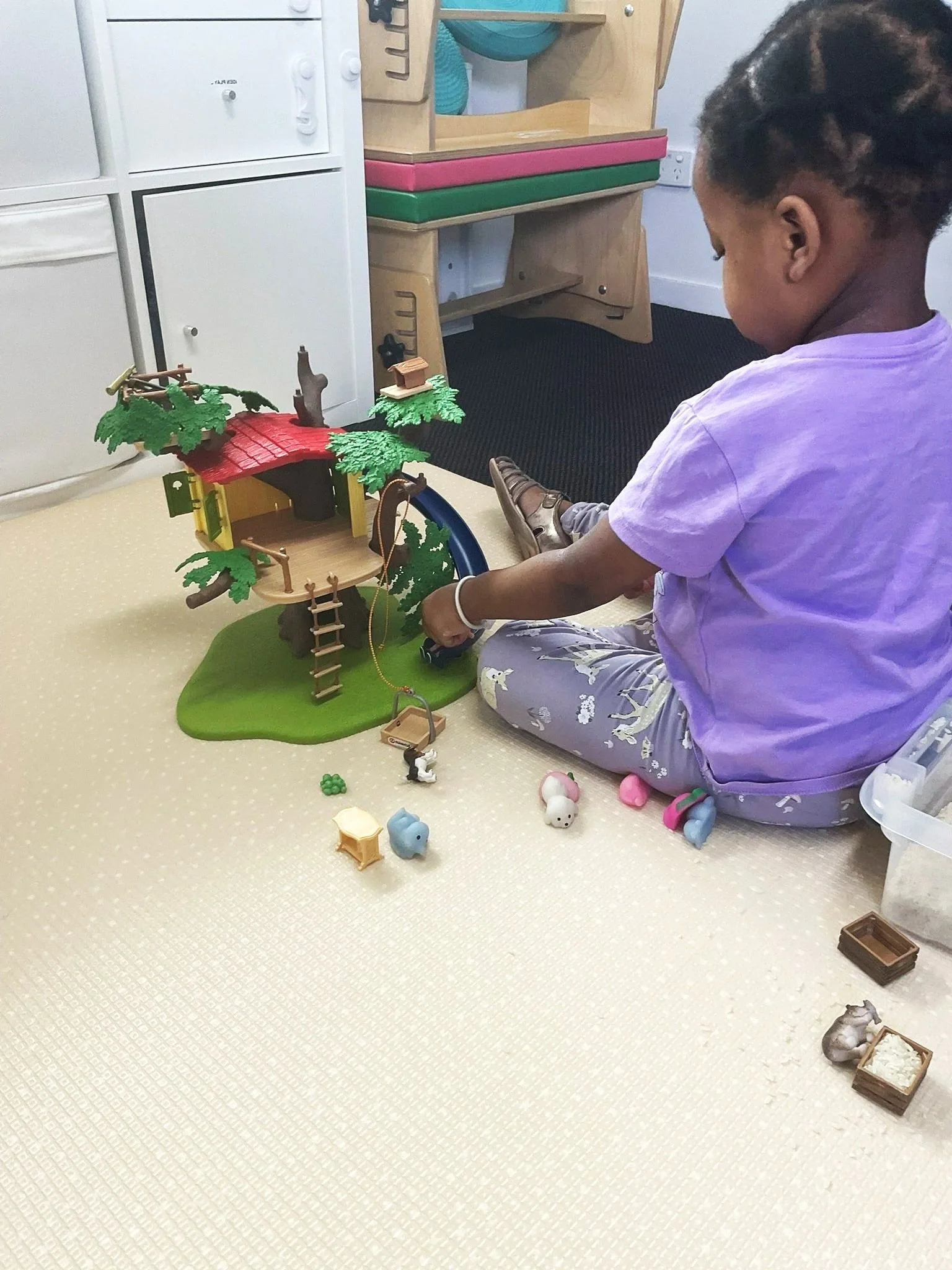PAEDIATRIC ALLIED HEALTH SUPPORT
Supporting Your Child’s Early Development
We believe in empowering families and caregivers to help infants, toddlers, and preschoolers blossom through life.
Our allied health team of Speech Pathologists, Occupational Therapists, and Physiotherapists support families to build children’s skills and confidence.
With early support, little challenges don’t have to become big hurdles.
Early Development & Early Intervention
DEVELOPMENTAL MILESTONES
The early years are full of exciting changes as your child learns, grows, and discovers new things every day.
Developmental milestones can be used as guidelines for what is typically expected at various ages, helping parents and caregivers monitor and celebrate each child’s progress.
While every child develops at their own pace, sometimes little signs can show us when a child might benefit from extra support to make learning, play, and communication easier.
Accessing professional support early during this critical stage of brain development can make a lasting difference and help children reach their full potential.
Some common signs your child might benefit from a developmental check include:
Movement & Physical Skills
Not yet walking by 18 months, or prefers bottom-scooting.
Trips or falls often, struggles to climb, or avoids playground equipment.
Has difficulty using both hands together (e.g., holding a toy while using the other hand).
Play & Social Development
Prefers to play alone or mostly watches others without joining in.
Limited pretend play (e.g., feeding a doll, pretending to talk on the phone).
Difficulty with sharing or turn-taking as they approach 3 years.
Feeding & Mealtimes
Ongoing gagging or choking on textured foods.
Very limited food range, prolonged mealtimes, or distress around eating.
Difficulty drinking from an open cup or managing cutlery as they grow older.
Speech & Communication
Not babbling, pointing, or using gestures by 12–15 months.
Few words by 18 months, or limited progress in learning new words.
Hard to understand, even for familiar adults.
Difficulty expressing wants/needs — leading to frustration or big emotions.
Emotional Regulation & Behaviour
Frequent, prolonged meltdowns that are hard to soothe.
Difficulty adjusting to changes in routine.
Very active and unable to sit for short group activities (songs, stories).
Common signs a child may benefit from further screening before starting Prep
KINDERGARTEN MILESTONES
Movement & Balance
Constantly bumping into peers or objects, falling often, unable to sit upright for long, lying on the ground during mat time, or struggling to sit for tabletop tasks.
Difficulty opening their lunchbox, managing zips or buttons, or caring for belongings.
Independence Skills
Play & Social Skills
Finding it hard to make friends, not engaging in play, following peers around without joining in, or having challenges sharing toys.
Emotions that “go from 0–100,” finding it hard to calm down, or struggling with changes in routine.
Emotions & Behaviour
Speech & Language
Unclear speech, difficulty producing sounds, struggling to express wants/needs, or delayed language.
New to Key Word Sign (KWS) or using alternative communication methods.
Communication Supports
Challenges with pre-literacy, e.g., recognising letters, linking sounds to letters, looking left-to-right on a page, or engaging with picture books.
Early Literacy Skills
Prolonged meals, refusing foods, or expressing strong emotions around eating.



